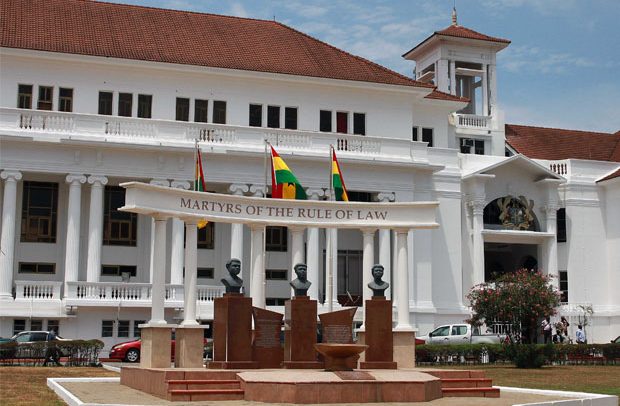Today, the Supreme Court of Ghana will deliver its highly anticipated judgment on the constitutionality of the Human Sexual Rights and Family Values Bill, commonly referred to as the Anti-LGBTQ+ Bill.
The bill, which prohibits LGBTQ+ activities, as well as their promotion, advocacy, and funding, has been a subject of controversy and debate in Ghana for years.
The journey to this moment began in 2021 when a private member’s bill was introduced in Parliament, seeking to criminalize LGBTQ+ activities.
The bill was met with fierce opposition from human rights groups, civil society organizations, and members of the LGBTQ+ community, who argued that it was discriminatory and unconstitutional.
Despite the opposition, the bill was passed by Parliament on February 28, 2024.
However, President Nana Addo Dankwa Akufo-Addo has not yet assented to the bill, stating that he will wait for the Supreme Court’s ruling before taking any further action.
Two high-profile lawsuits were filed at the Supreme Court, challenging the passage of the bill.
Richard Dela Sky, a broadcast journalist, and Dr. Amanda Odoi, a researcher at the University of Cape Coast, separately sued the Attorney-General and the Parliament of Ghana, arguing that the bill violates several provisions of the 1992 Constitution.
The plaintiffs contend that the bill raises significant concerns about potential infringements on the fundamental human rights and freedoms guaranteed to all Ghanaians under the Constitution.
They argue that the bill is discriminatory, oppressive, and unconstitutional and that it will have far-reaching consequences for the LGBTQ+ community in Ghana.
The Supreme Court’s judgment today will be a landmark decision that will have significant implications for the LGBTQ+ community in Ghana.
If the court rules that the bill is unconstitutional, it will be a major victory for human rights activists and the LGBTQ+ community.
However, if the court upholds the bill, it will be a significant setback for the community and will likely lead to further marginalization and persecution.
-BY Daniel Bampoe


